The Daniel K. Inouye Asia Pacific Center for Security Studies completed the third iteration of the Comprehensive Security Cooperation (CSC) course. The program brought together 103 Fellows from over 35 countries located in the Indo-Pacific region and beyond.
Held from September 21 to October 26, CSC 22-3 featured instruction on critical thinking, strategic competition, security cooperation, and a wide variety of other security topics. In addition to the core content, Fellows selected a concentration in one of three areas- Maritime Security, Counterterrorism, and Economics and Security.
Following the Center’s shared-learning model, small group seminar sessions proceeded after each plenary lecture. In small group discussions, the Fellows drew from their varied expertise and cultural experiences to find shared solutions to the region’s most pressing security issues. For many of the Fellows, the seminar setting proved to be their most significant source of learning.
“I thought that this course helped to bring ourselves up from our echo chambers, where within our own countries we have certain beliefs on how things are done,” said Commander Aaron Li, Republic of Singapore Navy.
“[At the seminar level], when we interacted, we were able to bring it down to details to hear other [nation’s] perspectives. It helped free us up and find objectives we can take with us and apply at home.”
For Fellow Verena Neundter, Delegate to the Police and Security Forces, International Committee of the Red Cross, the course’s comprehensive approach to security motivated her to seek more partnerships in her role working for a nongovernmental organization.
Said Neundter, “When I’m back home, I will review the opportunities for us as an NGO to collaborate better and work more intensively with other states, governments, or organizations.”
In addition to lectures and seminars, CSC 22-3 included critical thinking exercises, applied learning projects, site visits, and networking opportunities. Highlights of the CSC experience included a Fellows-led debate on security in the Indo-Pacific and an intensive, day-long gray-zone game that explored interstate cooperation and competition.
During the gray-zone game, the Center faculty divided Fellows into six fictitious country teams. The country teams elected leaders and diplomats and established national strategies. To improve security in the region, the teams engaged in diplomatic relations. The teams submitted “moves” to a control desk of Center faculty. If approved, their moves could further their countries’ interests, scoring points in their favor.
“Ultimately, [the exercise] is a tool for [Fellows] to gain insight into the future and test their perceptions and assumptions,” said Dr. Deon Canyon, who created the exercise.
The CSC also featured the recent innovation of the Alumni Seminar Leaders program. Through the program, the Center invited stand-out alums to return to the Center to build on their initial experience. The Alumni Seminar Leaders co-led seminars alongside DKI APCSS professors, facilitated discussions, and illuminated discourse with their subject matter expertise. Kathrine Lingan (known as KB) from the Philippines and Adiyasuren Jamiyan (known as Adiya) from Mongolia received the honor as the first pair selected to serve in this role.
Before the course, a decrease in Honolulu’s community transmission rate of COVID-19 allowed the Center to increase attendance from the last class by over 40%. As the community transmission rate decreased, the Center removed its mandatory masking requirement, allowing the Fellows to engage face-to-face. The demographics of the class reflected a diverse collection of security practitioners. 92% of the Fellows were international, 51% were military, 42% were civilians, 7% were police, and 29% of the Fellows were women.
At the end of the course, the Fellows voted climate change, economic crises, and maritime disorder as the top three security issues facing the region. The three most significant obstacles to improving security were political problems, resources, and corruption. As a solution to these issues, most Fellows voted for multilateral cooperation as the best way to improve regional security.
CSC aims to educate, connect and empower international Fellows to work collaboratively to find innovative solutions to the region’s complex security challenges. The course occurs three times a year. The next CSC will commence in February 2023.



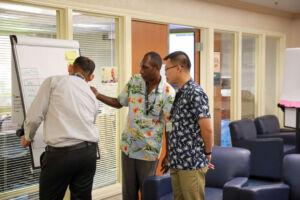

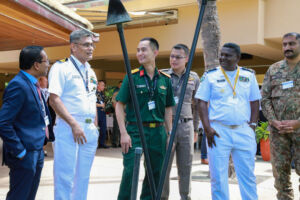
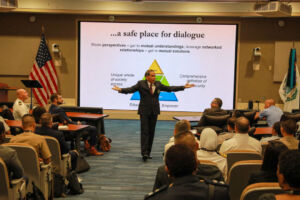
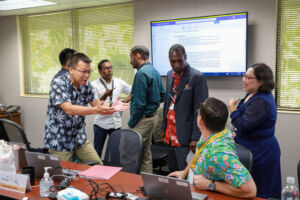
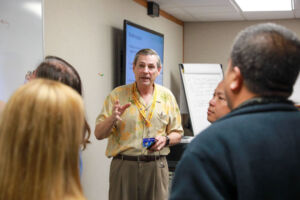
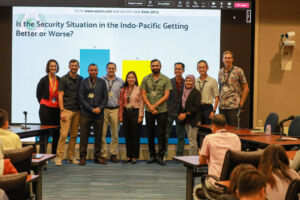
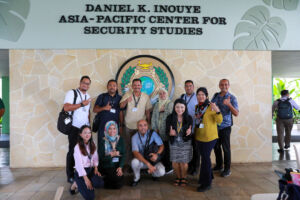
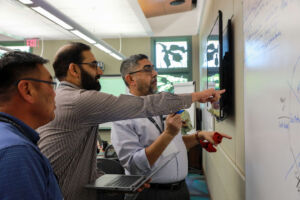
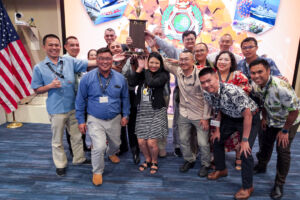
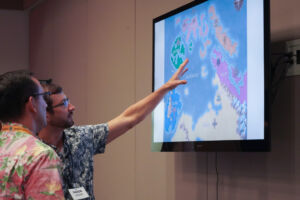
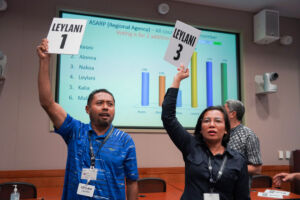
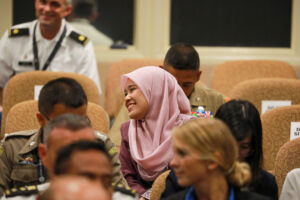
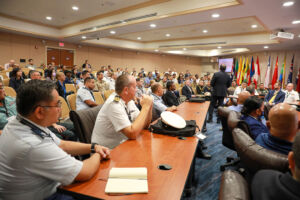
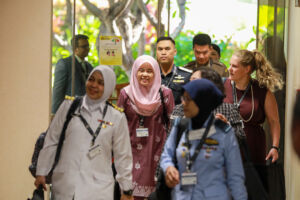
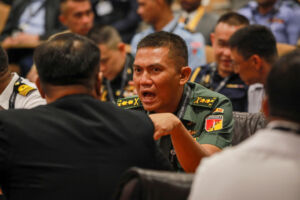

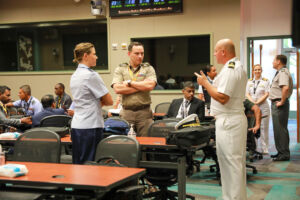
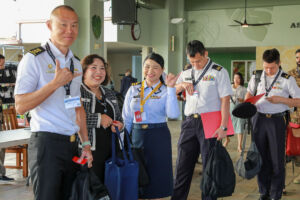
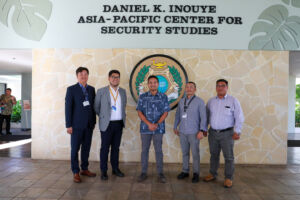
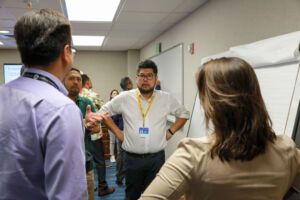

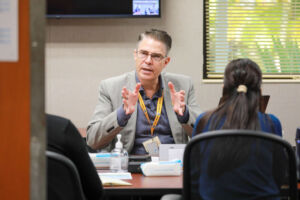
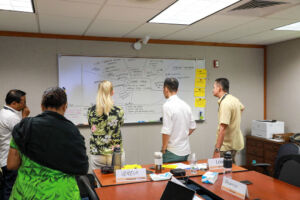
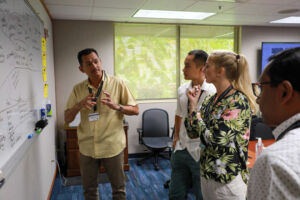
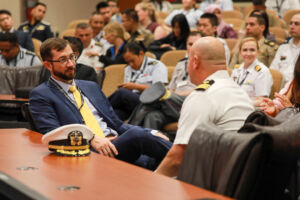
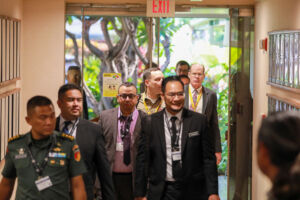
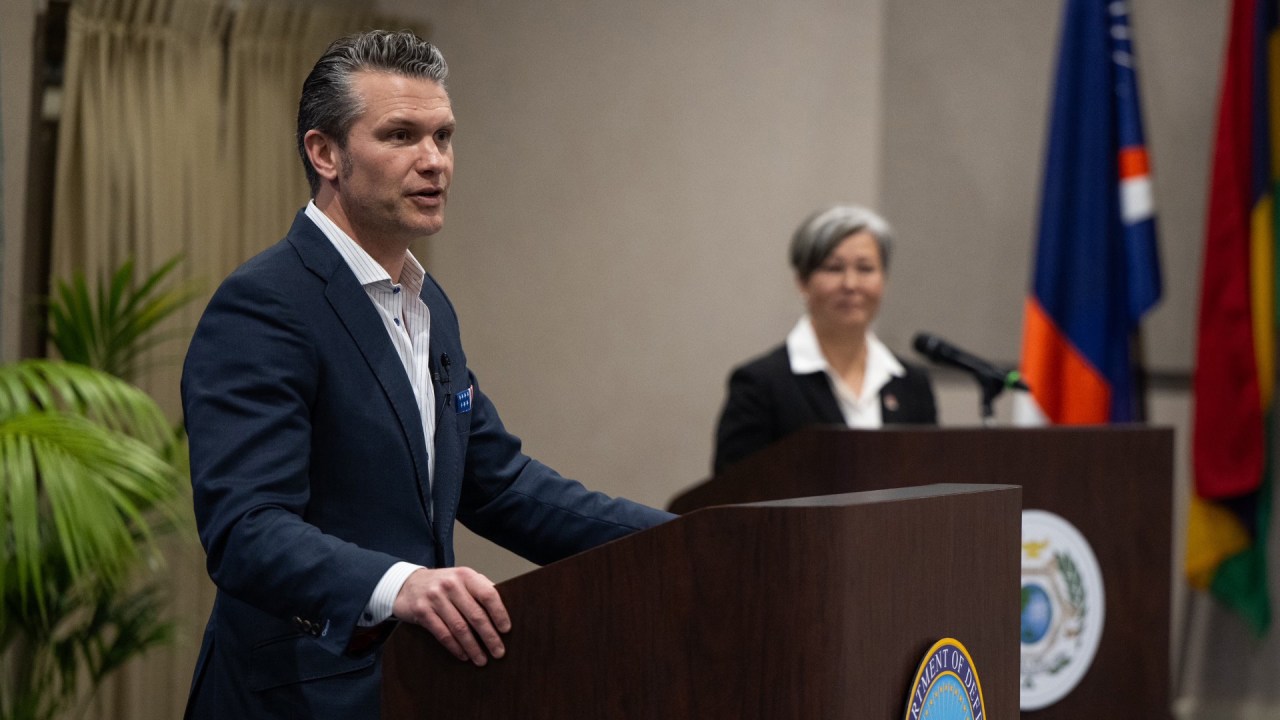

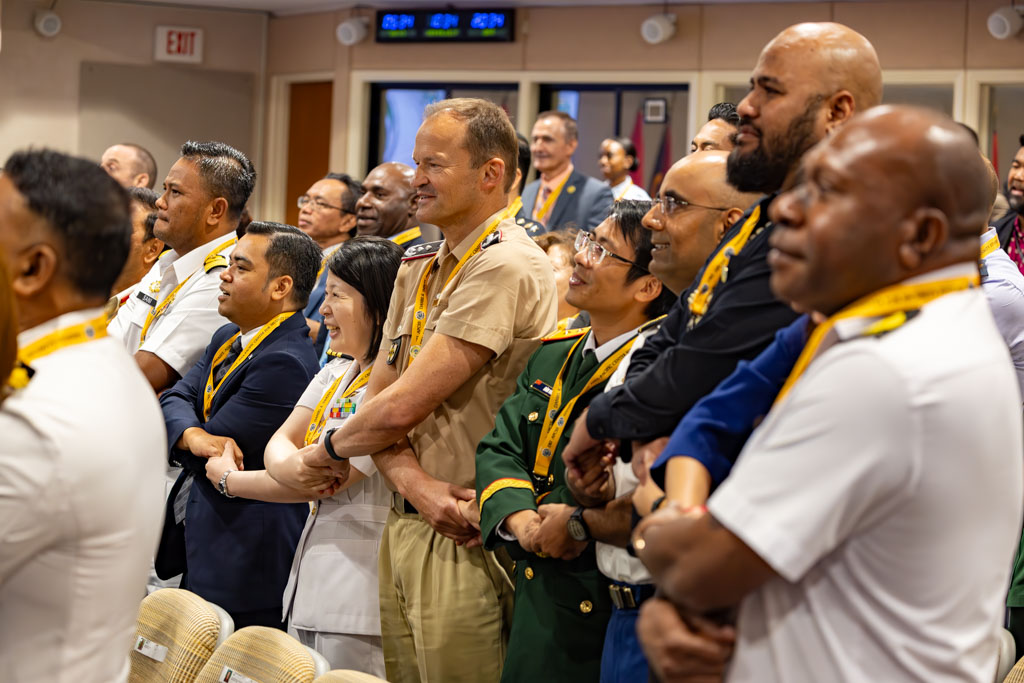


Leave A Comment